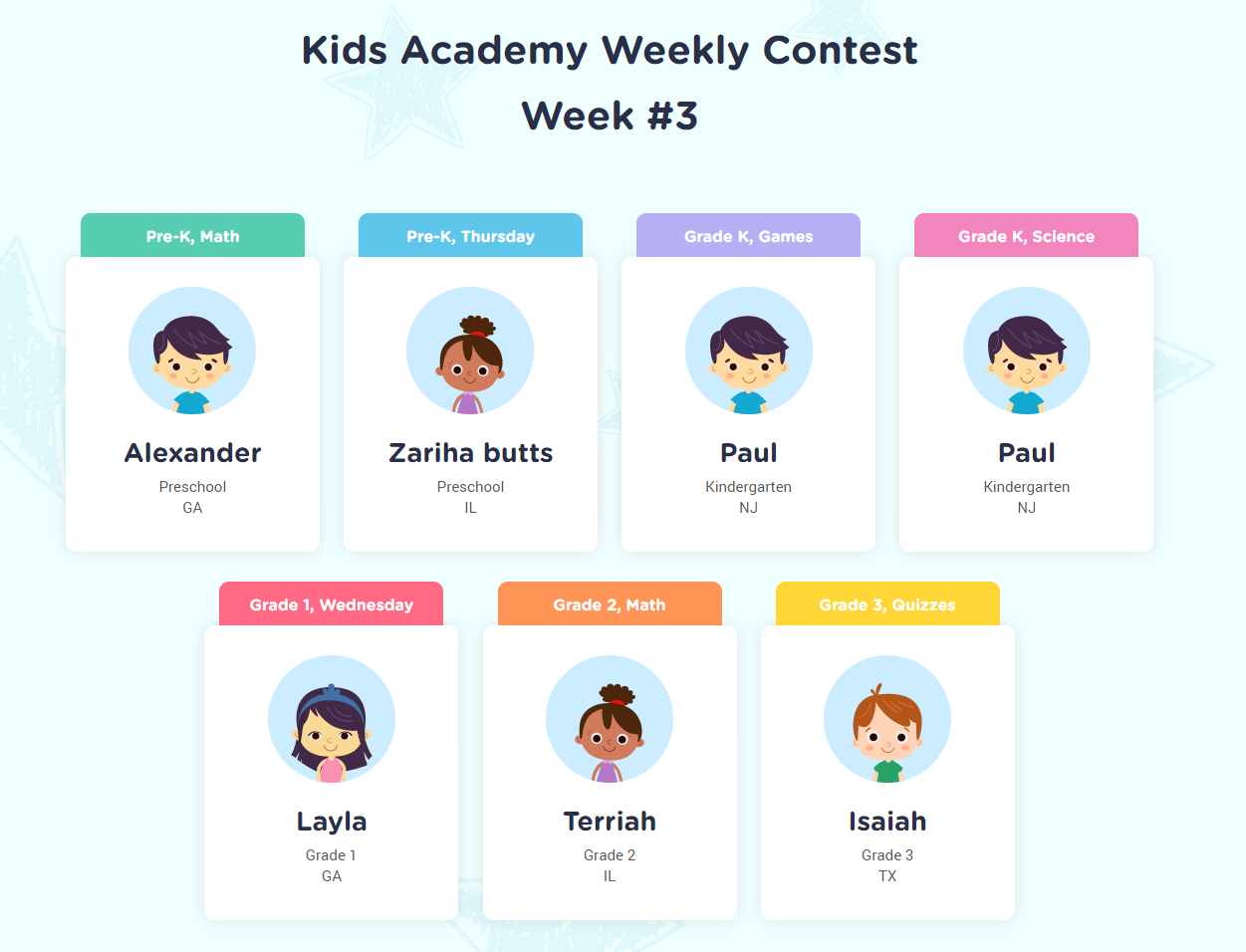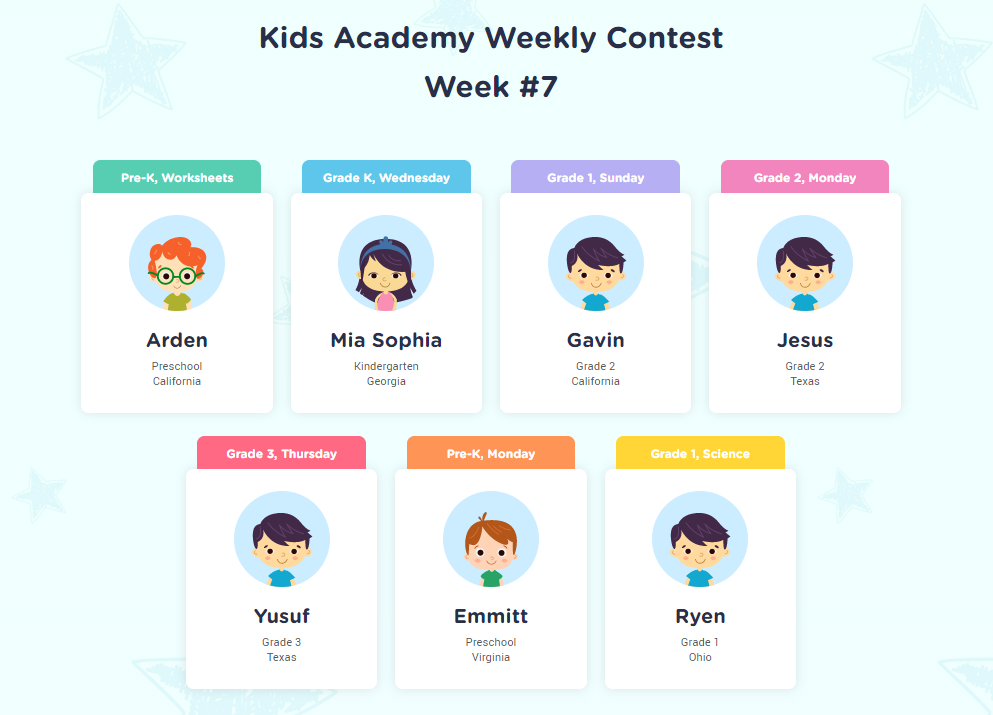Easy Chess Worksheets for Ages 4-6
6 filtered results
-
From - To
Discover a fun and engaging way to introduce chess to young learners with our "Easy Chess Worksheets for Ages 4-6"! Designed with vibrant colors and playful illustrations, these worksheets simplify chess concepts for preschoolers. Young children will enjoy interactive activities such as coloring, matching, and basic chess movement exercises tailored to their developmental stage. Each worksheet aims to build foundational skills while fostering critical thinking and problem-solving abilities. Perfect for at-home learning or as supplementary materials in preschool and kindergarten settings, our collection makes chess accessible and entertaining for little minds. Explore our worksheets and watch your child fall in love with the game!
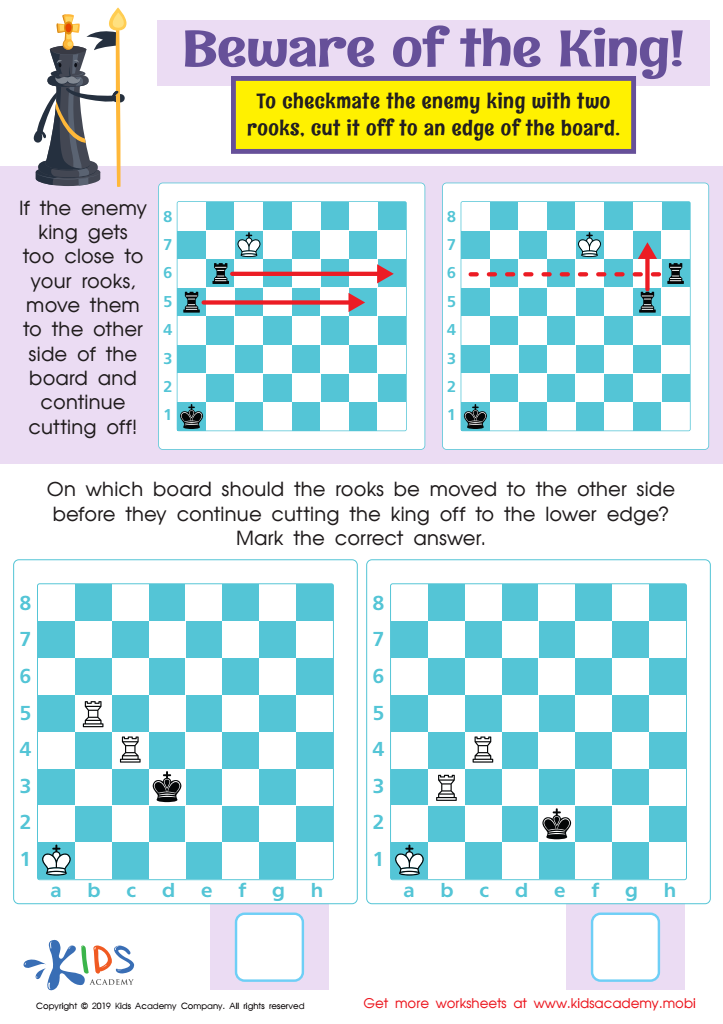

Beware of the King! Worksheet
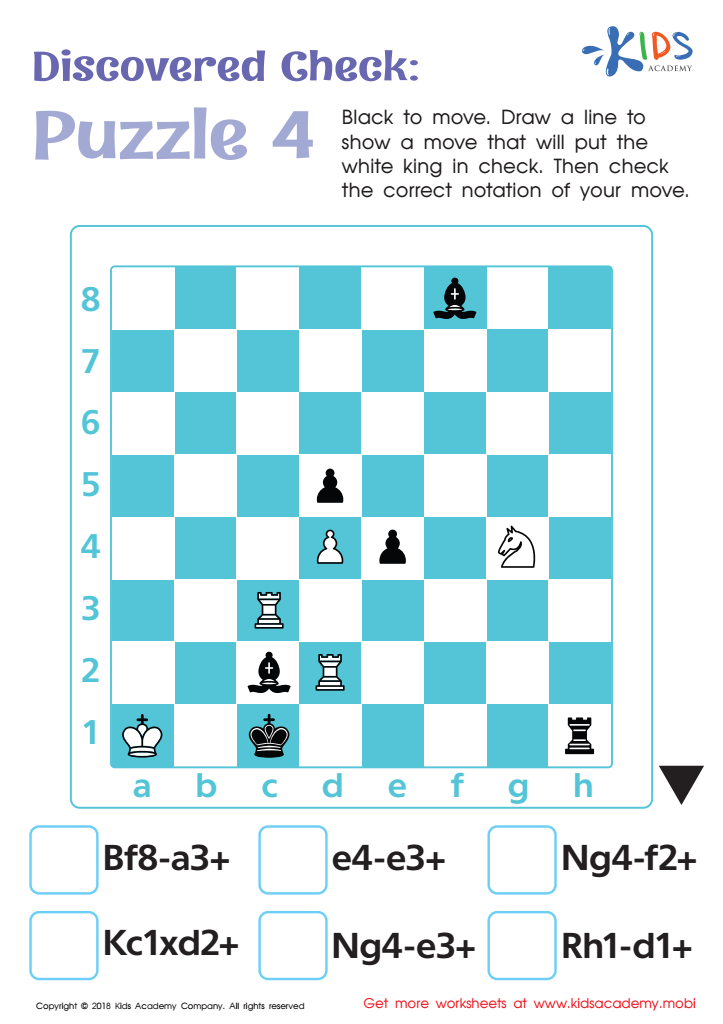

Discovered Check: Puzzle 4 Worksheet


Discovered Check: Puzzle 2 Worksheet
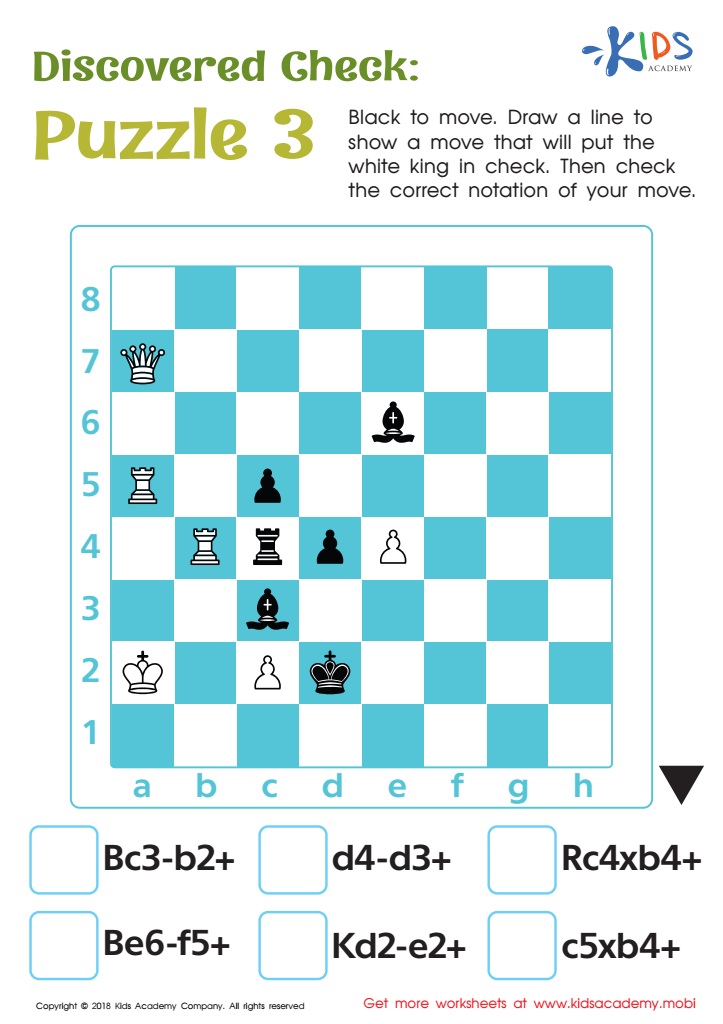

Discovered Check: Puzzle 3 Worksheet
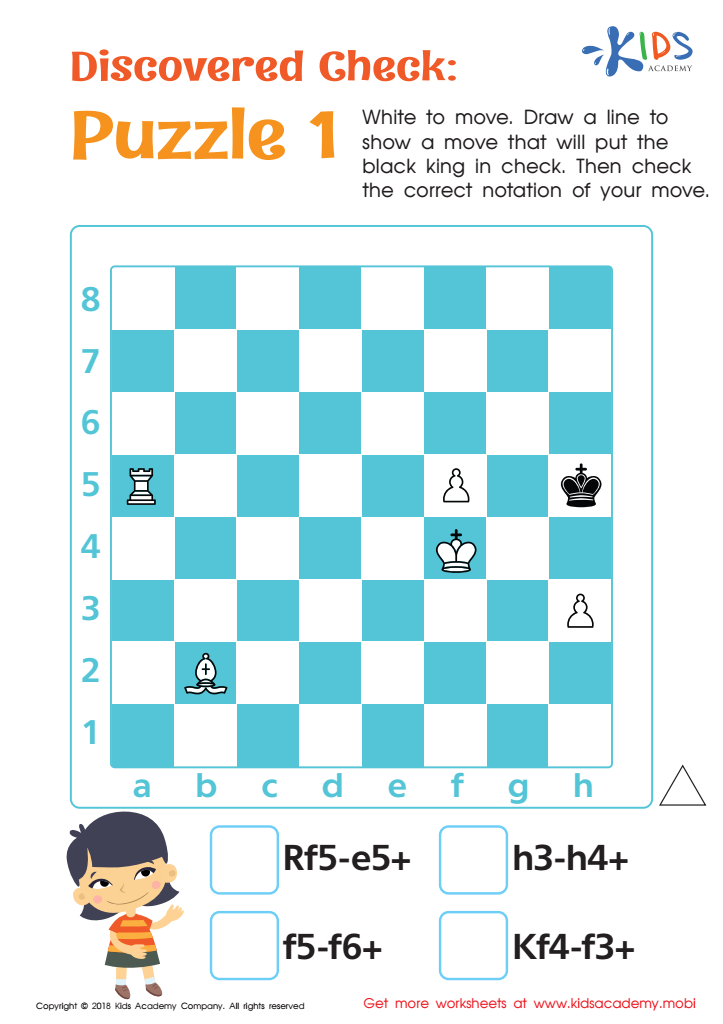

Discovered Check: Puzzle 1 Worksheet
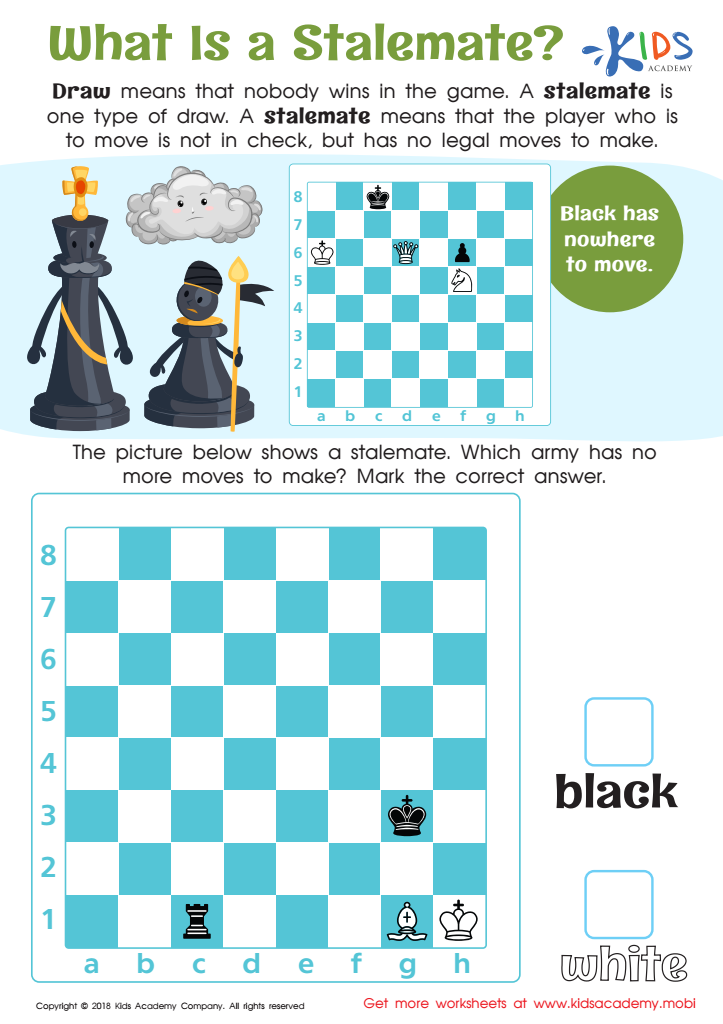

What Is a Stalemate? Worksheet
Parents and teachers should care about Easy Chess for Ages 4-6 because it provides numerous benefits for early cognitive and social development. Chess introduces young children to critical thinking and problem-solving skills in a fun and engaging way. As they learn to anticipate their opponent's moves and strategize their own, they enhance their ability to think ahead, make decisions, and develop patience—all valuable life skills.
Moreover, chess fosters discipline and concentration. Children must focus on the board and their pieces, which can help improve attention spans and academic performance in other areas. Additionally, Easy Chess encourages social interaction, as children often learn and play together, developing communication skills, sportsmanship, and the ability to handle winning and losing gracefully.
Incorporating chess into early education can also provide an inclusive environment where children of varying abilities can participate and succeed at their own pace. The game's simple rules and colorful pieces make it accessible, captivating the attention of young learners.
Overall, integrating Easy Chess into the educational landscape can enrich a child's developmental experiences, paving the way for not only academic growth but also the nurturing of essential life skills. This makes it a worthwhile consideration for both parents and educators.
 Assign to My Students
Assign to My Students



